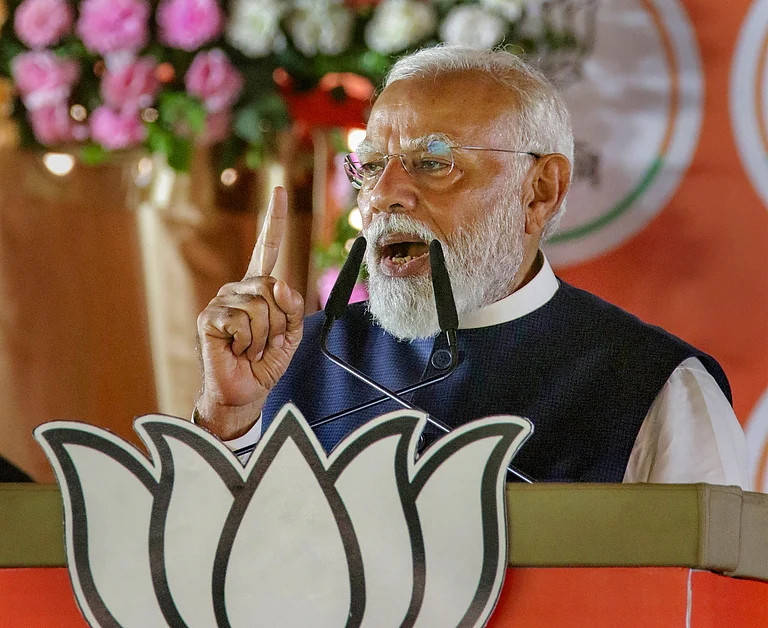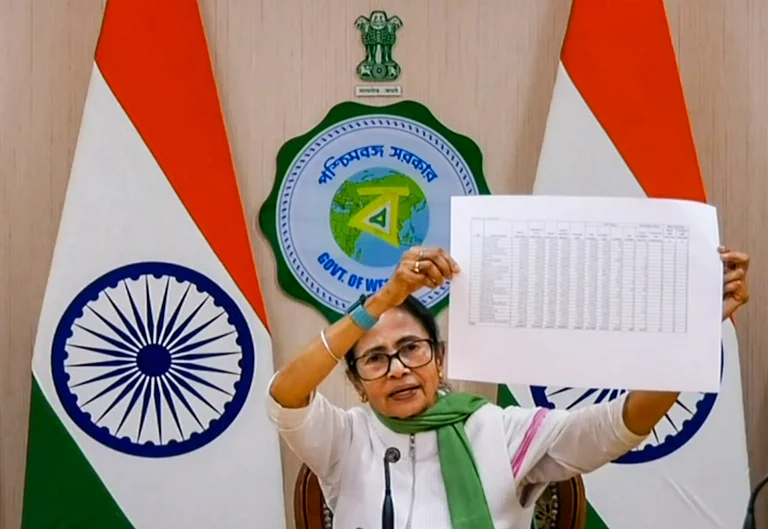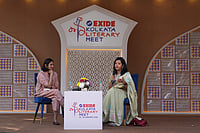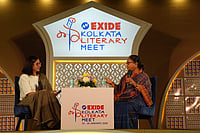West Bengal’s ruling party, Mamata Banerje’s Trinamool Congress (TMC), has stepped up its demand for separate Religious Codes for the tribal religions known as Sari and Sarna.
On Wednesday, the party’s Rajya Sabha member Samirul Islam made the demand in the Upper House of the Parliament in a special mention.
“Sari dharam and Sarna dharam are two religious practices of tribal communities, including Santhal, Bhumij, Munda, Sadan, Lodha, Sabar, Birhor, etc and also practiced by a section of Kudmi community people… these ancient religious traditions have yet to receive official recognition,” Islam said in his mention.
His mention comes a year after the state assembly passed a resolution, on February 17, 2023, to recognise Sari and Sarna as distinct religious denominations. The state government communicated the proposal to the Union Home Ministry 10 days later.
Islam said in his Rajya Sabha mention that the Union government was yet to respond to the state government’s proposal.
“The followers of Sari and Sarna have a fundamental right to practice their religious beliefs as guaranteed by the Indian Constitution. Recognition requires a survey to identify practitioners, a step yet to be initiated,” he said.
Raising the issue at a time the parliamentary elections are knocking on the door assumes significance because tribal communities play an important role in determining the results of several Lok Sabha seats in the state – Jhargram, Purulia, Bishnupur, Birbhum, Malda Uttar, Raiganj and Alipurduar.
According to the 2011 census, tribal people form 5.8% of the state’s population and are numbered around 53 lakh. The state’s Kudmi population is estimated at well over 30 lakh.
Islam, however, denies he demand has anything to do with the elections. “I have received dozens of letters from tribal groups and organisations from southwestern and northern Bengal, urging me to press for the demand. It is a legitimate demand and a pressing issue,” he tells Outlook.
In the 2019 Lok Sabha election, the BJP swept the tribal-dominated areas in the state. However, in the 2021 assembly election, the TMC managed to make a recovery in some tribal-dominated areas.
Going by the 2019 Lok Sabha election trend, the BJP was leading in 13 of the state’s 16 ST-reserved assembly segments, apart from several unserved assembly segments dominated by the Kudmis. However, in the 2021 assembly election, the TMC won 9 of these 16 ST-reserved seats, as well as several Kudmi-dominated ones.
Pressing for Sari and Sarna’s religious code may put the BJP in a spot of bother, as the party has not been favourable to this demand, even though they do not want to comment publicly.
The census enumerates only people following Hindu, Muslim, Buddhist, Christian, Jain and Sikh faiths. The rest are clubbed under the Other Religions and Persuasions (ORP) category. The 2011 census reflected a growing trend among indigenous people to list themselves as followers of ORP.
On the other hand, over the past several years, the BJP’s ideological-organisation parent, the Rashtriya Swayamsevak Sangh (RSS), has been running a campaign encouraging tribals to list themselves as Hindus during Census enumerations.
Besides this ideological opposition, division among tribal groups is allowing them to go slow, says a BJP parliamentarian from West Bengal.
There certainly are differences. The Kudmi-Mahatos, who are currently listed as Other Backward Classes (OBC), have been pressing for their inclusion in the Scheduled Tribe (ST) list. As the TMC MP rightly pointed out in Rajya Sabha, many of these Kudmis too follow the Sarna faith.
“We support the demand for Sarna code. We have written to the Union government demanding this,” says Ajit Prasad Mahato, a leader of Adibasi Kudmi Samaj.
On the other hand, a group of Santal activists, under the banner of Sari Dharam Aven Aarang, have called for a protest gathering at Jantar Mantar in New Delhi on February 24 to press for religious code for Sari.
However, not all tribals groups want recognition for Sari or Sarna. Bharat Jakat Majhi Pargana Mahal (BJMPM), one of the influential tribal organisations, opposes this idea saying codes for Sari and Sarna would divide the tribals.
A cold tension has been brewing in West Bengal’s tribal-dominated areas, especially the southwestern districts of Purulia, Jhargram, Bankura and Birbhum, with the Kudmis demanding inclusion in the ST list. Several rounds of road and railway blockades had brought public life to a standstill for days.
Many tribal groups are opposed to this demand, though there has not been any confrontation yet. The state government and the ruling party want to tread cautiously. “A wrong move can trigger a Manipur-like situation,” says a senior TMC leader.
The state government had in 2017 sent a proposal to the Union home ministry, supporting the Kudmi demand for recognition as tribals. The Union government asked for more evidence and supporting arguments but the state government has not reportedly responded.
The Adibasi Kudmi Samaj has called for a three-day gathering in Purulia district on March 8-10 that Kudmi leadership from West Bengal, Jharkhand, Odisha and Assam are scheduled to attend. A two-day indoor conference will be followed by a public meeting, from which they would indicate their political position, Mahato tells Outlook.
A TMC leader from Jhargram says that at a time the BJP is trying to win over the Adivasi and Kudmi votes by attempting Hinduisation of the indigenous people, using Hanuman temples and other Hindu religious festivals as points of contact, pressing for Sari and Sarna religion codes will serve as an ideological opposition.
However, anthropologist Suman Nath, who teaches at Dr APJ Abdul Kalam Govt College in Kolkata, feels that if the TMC is hoping to put up an ideological battle against the Sangh Parivaar's Hinduisation programme and reap benefits in the 2024 Lok Sabha election, they are already late.
“The Hinduisation has reached far deeper and people belonging to smaller faiths have become more comfortable in coming under the Hindu umbrella. While some social groups are pressing for reviving tribal religion, I am not sure if they have enough political influence,” Nath tells Outlook.


























